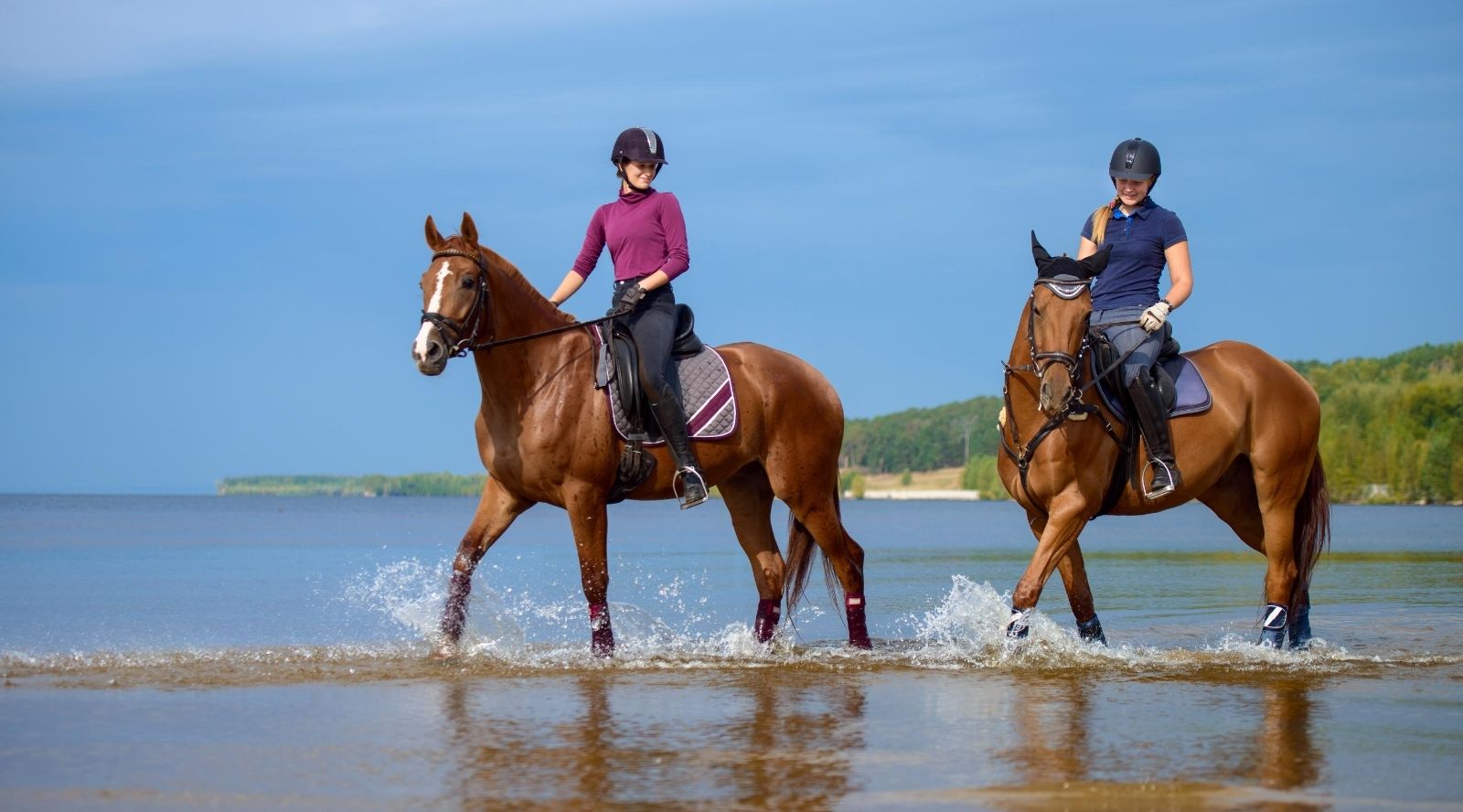The midst of August is here and thriving. Humid, sticky weather clogs your pores and sucks you down. Schooling your horse anywhere between 11am and 4pm is a definite “no thank you,” in hopes to aim for early morning or evening when the sun is not bearing its teeth. Don’t take this time for granted as the weather will soon swap its heat for cool breezes and chilly nights.
It may not feel like it, but summer is running out. Summer of 2020 seems like an eternity ago that COVID-19 took the world by storm. This virus has ruined everything from vacations to horse shows to even going out to the barn with our friends! Even with our now hermit-like lifestyles, time is still passing by quickly, so make the last few weeks of summer count!
Teach your horse to swim
Be ready to get wet and muddy.This is where synthetic tack comes in handy. No worries about water damage! The Vegan-X Halter by Henri de Rivel is a perfect head collar to use when introducing your horse to water with its synthetic, strong material.
There are several methods to teach your horse how to swim. Getting them used to being around water is a must; take a lunge line and whip with you to do some ground work near the water’s edge, each lap sending your horse closer to the water until their circle requires them to enter the water. Swimming is a great way to cool down and will make them much more comfortable riding through ground water if on a trail or on the cross country course!
Nail the perfect homemade fly spray recipe

Making homemade remedies and recipes can make you feel good about the ingredients you are exposing your horse to. Homemade fly spray recipes often consist of essential oils such as cedarwood oil, citronella, rosemary and more because of their natural insect-repellent properties. Vinegar is another popular ingredient to stir in- distilled white or apple cider. Diluting this mixture in water makes the solution not smell as potent and makes the concentrate go further. Whenever trying out a new recipe, try it out in a small, stationary area on the skin to monitor for an allergic reaction.
Practice your braiding skills

This is absolutely an activity that you can do year-round, but it is much more enjoyable and easier when your fingers aren’t numb. There are a number of different braid types of manes, tails and forelocks.
Choosing one depends on the discipline you ride. For hunt seat and equitation riders, the classic hunter braid with a button and loop is ideal. For the dressage and jumper ring, larger button braids are most popular and usually quicker to master!
While the days of summer are winding down, there is still time to fit in some hot-weather activities. Hopefully next year instead of trying to find something to pass the time by, we will all be riding more consistently and back in the show ring!


